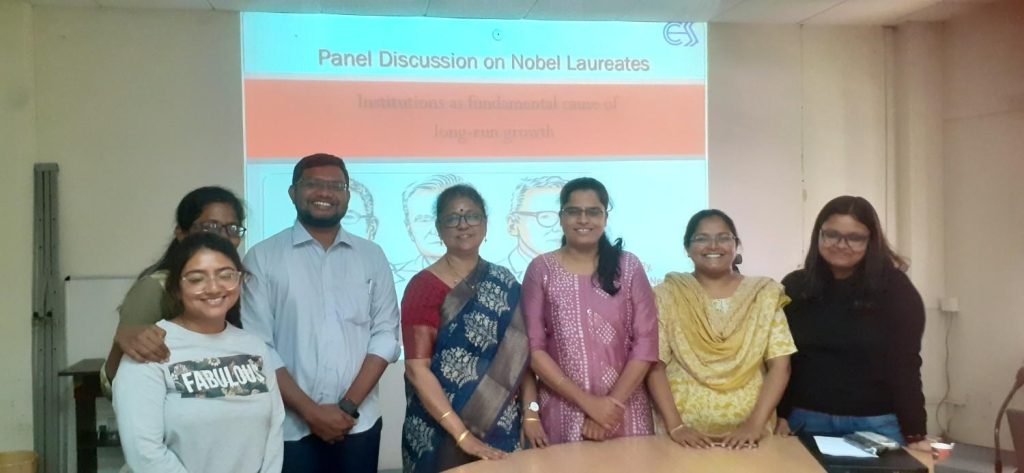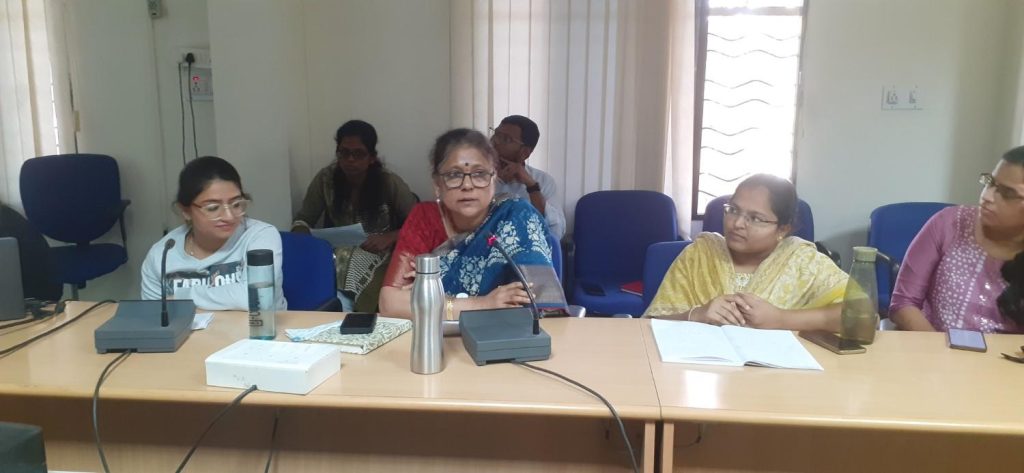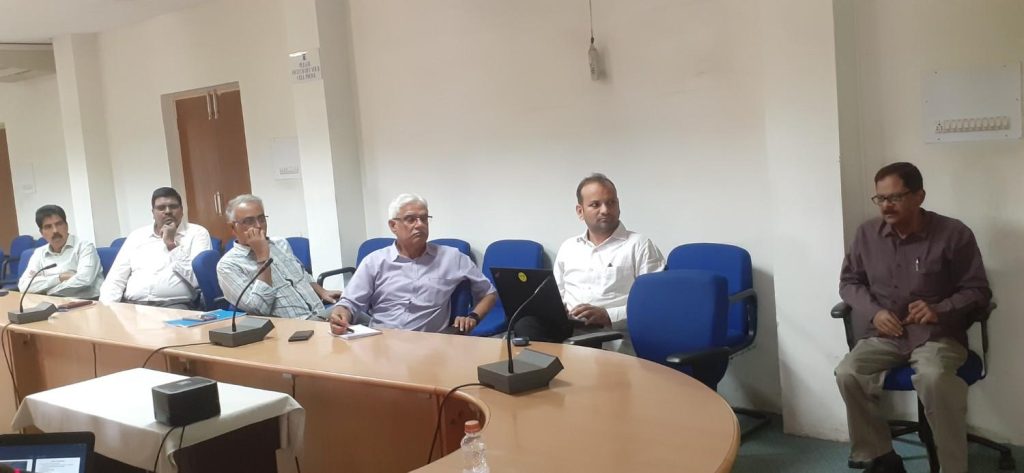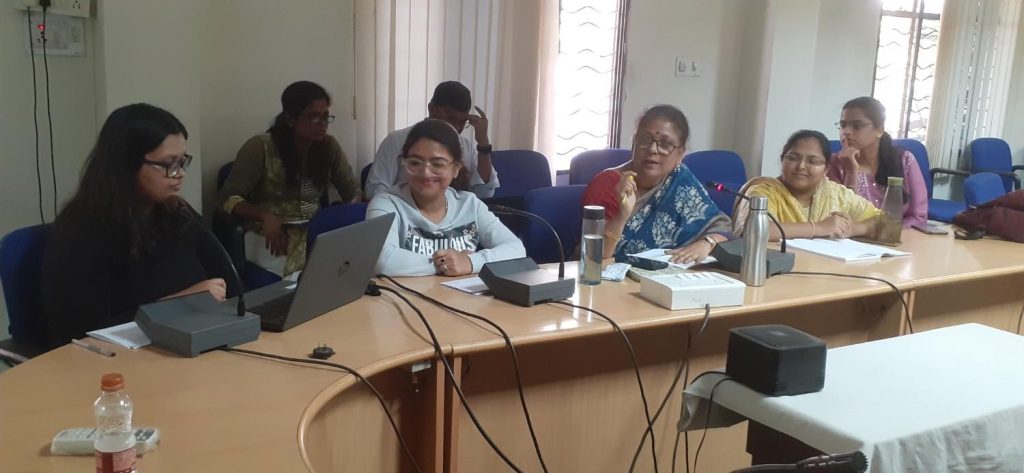



CESS-DGS organized a presentation by the 2024-25 batch of scholars enrolled in the Full-Time PhD Programme on 20th January 2025 at 11:00 AM in the First Floor Seminar Hall. The scholars presented on the significant contributions of Nobel Laureates Claudia Goldin, and the trio Daron Acemoglu, Simon Johnson, and James A. Robinson. Dr. Alivelu Kasturi, Dean of the Division for Graduate Studies, welcomed the faculty and scholars to the event and provided a brief overview of the significance of these presentations. The session provided a platform to explore the impactful work of these Nobel Laureates and their contributions to economic research and development.
The presentation by Tithur Sarkar, Mousomi Chatterjee, and Pushpa focused on Claudia Goldin, who was awarded the 2023 Sveriges Riksbank Prize in Economic Sciences in Memory of Alfred Nobel, focused on her pioneering work “for having advanced our understanding of women’s labor market outcomes.” Goldin’s research explores the historical evolution of gender roles in the labor market for over 200 years, particularly in the United States from the 18th century to the late 20th century. She highlights the persistence of the gender wage gap, which she attributes to factors like education, work-family balance, and social expectations. In works such as Understanding the Gender Gap: An Economic History of American Women (1990) and Career and Family: Women’s Century-Long Journey Toward Equity (2021), she outlines how women’s labor force participation followed a U-shaped curve: high participation during the 19th century, a decline during early industrialization, and a surge in the 20th century. Her work is distinguished by its extensive use of historical data to analyze gender dynamics. She also discusses the “Quiet Revolution” of the 1960s, when women began to surpass men in educational attainment and workforce participation. Goldin advocates for offering more flexible work options to support women in balancing career and family responsibilities. The critique and future research work was also discussed.
The presentation by Neelima, Praveen and Sruthi on Nobel Laureates Daron Acemoglu, Simon Johnson, and James A. Robinson focuses on institutions as the fundamental cause of long-term growth. The discussion addresses the critical question: “Why are some countries poorer than others?” The paper identifies three major factors influencing a country’s development: geography, culture, and institutions. The first hypothesis suggests that people in cooler climates are more productive than those in warmer regions. Economic success has often been interpreted as a sign of divine favor, and Weber argued that systems like India’s caste structure hindered capitalist development. Institutions, defined as human-devised rules shaping interactions, play a pivotal role in economic outcomes. While wealthy nations foster innovation that benefits society, such as Bill Gates’ software contributions in the U.S., poorer nations often rely on monopolies that extract wealth, as seen in Carlos Slim’s telecommunications monopoly in Mexico, which reduces national income by 2% annually. Economic institutions are crucial in determining prosperity, with strong evidence supporting their importance. The social conflict approach highlights that institutions are shaped by power struggles and resource distribution, emphasizing the role of political structures. The transition from feudal labor markets to free labor markets was pivotal for development. Theories on institutional differences must consider politics, political power structures, and the nature of political institutions. Future efforts should focus on constructing formal models and understanding how policy interventions can shift institutional equilibrium. The presentation was followed by the discussant Prof. C. Ravi remarks and further explanation on the methodologies involved in both the presentations.
Dr. Alivelu Kasturi also focused on the critique of the work carried out by Acemoglu, Simon Johnson, and James A. Robinson. She concluded the presentation by thanking the faculty and research scholars for their participation and contributions.
